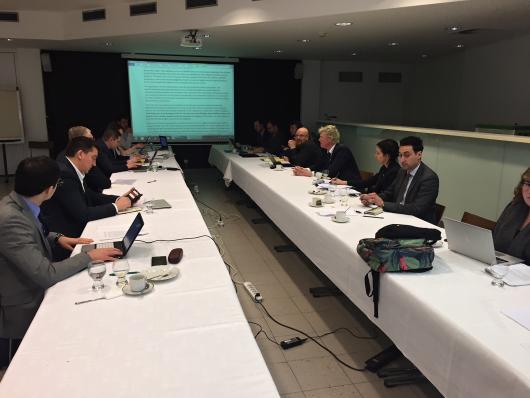
The Czech Republic contributing to the security of the elections to European Parliament
23.03.2018 / 18:41 | Aktualizováno: 23.03.2018 / 18:56
The Permanent Representation of the Czech Republic to the EU has hosted a second workshop of the NIS Directive Cooperation Group Work-stream on Cyber Security of Election Technology on March 20, 2018. The workshop was attended by 17 participants from 10 member states, European Parliament and ENISA. Mr. Jaroslav Zajíček, Czech Republic´s Ambassador to COREPER I., has given the opening speech.
The elections to the European parliament have a strong international component and impact of incidents and threats is EU‑wide. The Secretary General of the European Parliament, Klaus Welle, wrote to the chair of the Cooperation Group in October 2017 asking to address cyber security of elections with a view of securing the 2019 European Parliament elections, as “elections are a particularly sensitive process in a Union that has democracy as one of its founding values.” He furthermore highlighted in his letter that an incident during the elections “could create major disruptions to the constitution of the next Parliament.”
The Cooperation Group established by the NIS Directive supports and facilitates strategic cooperation and the exchange of information among Member States to develop trust and confidence amongst them. Therefore, on November 28, 2017, the Cooperation Group agreed to focus on cyber security of election technology and asked Estonia to map similar existing European initiatives and advance the process. Estonia convened a dedicated workshop in Brussels on January 8, 2018 and the Czech Republic has hosted a second workshop dedicated to this issue on March 20th, 2018.
As an end-result, the Work Stream members envision a compendium of practical and workable measures that can be taken by Member States to secure technology involved in elections. This living document is to be a set of best practices based on the experiences of Member States in addressing the identification, mitigation and management of cyber risks related to election process. As organization of elections is a national prerogative and there is a great degree of variation across Member States, this approach would also best allow Member States to choose tools and techniques best fitting their needs.




